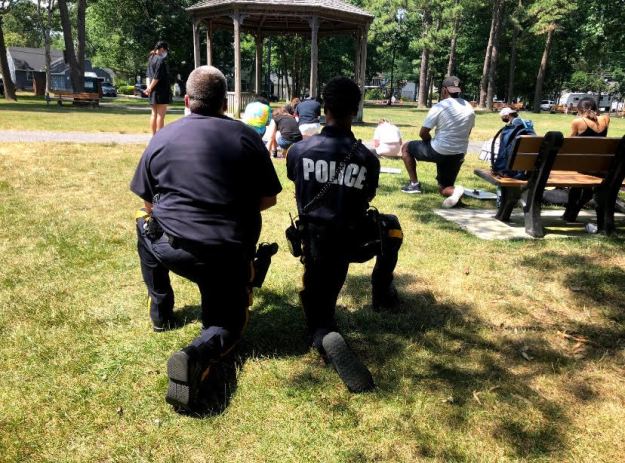 Lia Opperman
Lia Opperman
By Lia Opperman
Galloway, N.J.
A mid nationwide Black Lives Matter protests after the tragic death of George Floyd, 17-year-old youth activist Sunrose Rousnee of Galloway, New Jersey, decided to take matters into her own hands.
A rising senior at Absegami High School and president of her school’s drama club and Gay Straight Alliance, Sunrose planned a local protest that took place on June 26. The protest was held in Galloway’s neighboring town, Absecon, New Jersey, where she was joined by around 50 people from the community.
When asked why she decided to start her own protest, Sunrose explained that there was a protest in her hometown, Galloway, but many people who lived in nearby towns were upset that there wasn’t a protest where they resided—and weren’t stepping up to host their own. That inspired Sunrose to spend weeks planning a location, speeches, and safety pre- cautions for citizens in Absecon to have their voices heard and be properly represented in their community.
Sunrose also spent a lot of time deciding on a name for her protest, but ultimately settled on “All Black Lives Matter” in order to be inclusive of all Black lives, including those in the LGBTQ+ community.

Lia Opperman
The protesters marched, spoke, listened to speeches, knelt in a moment of silence for George Floyd, and sang in Absecon’s Heritage Park, all in an effort to honor Black people who have en- countered police brutality and to advocate for change.
Eventually, the group departed from quaint Heritage Park and marched to busy and bustling Route 30, taking their posters and voices with them for all to see and hear.
Sunrose hopes that the protests that have been occurring in Atlantic County, including her own, will provoke change in the community.

Lia Opperman

